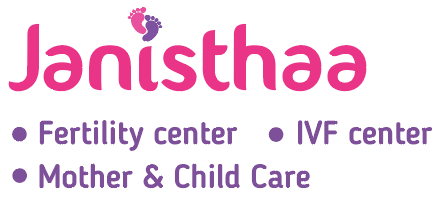The Growth of an organism is an interplay of genetics and the environment. When we speak of the environment, it refers not only to the external worldly environment but the environment (i.e., physiology) within the human body of the pregnant mother that is external to the foetus.
One such important environment that aids in the embryo’s growth, especially in its initial phase, is Endometrium. Endometrium is a thin layer of protective tissue that lines the uterus where the fertilized embryo implants itself to grow into a foetus during the gestation period. Endometrial provides the necessary nourishment such as proteins, glycogens, lipids and other fluids to help the baby’s growth. Conversely, a very thin or very thick Endometrium could jeopardize a pregnancy, resulting in pregnancy loss or multiple IVF failures. It is therefore essential to ensure right from the beginning that the expectant mother has a healthy Endometrium.
Related Article– HOW TO BOUNCE BACK AFTER A FAILED IVF CYCLE
What is ERA (ENDOMETRIAL RECEPTIVITY ARRAY) ?
Assessment of a healthy Endometrium could be performed through a vaginal ultrasound to measure its varying size, which most physicians use. However, another procedure gives a better measure of whether the Endometrium is prepared to aid in the process of embryo implantation. This method is known as the Endometrium Receptivity Array or ERA. As the name suggests, ERA is the period or implantation window within which the Endometrium is receptive to the embryo implantation. It is said that the implantation window is usually between 4-5 days once the embryo enters the uterus. At this point; in time, it becomes important to assess the probability rate of Endometrium being receptive to support successful implantation. The method is a biopsy that involves the removal of a small sample of the lining along the uterus for in-depth molecular analysis of 248 genes.
Who should opt for ERA?
Women who have undergone the following experiences and look towards finding the cause of the same:
- Recurrent pregnancy loss,
- Multiple miscarriages, and
- Multiple IVF implantation failures.
It does not essentially mean that a faulty Endometrial results in the above conditions, but ERA is rather used as a tool to either confirm or rule out the role of a dysfunctional Endometrium.
What happens during ERA?
It is a simple procedure that does not cause much discomfort and does not warrant hospitalization in general. However, preparation to the procedure usually begins about a month or a month and half before the embryo transfer. The patient is administered hormones such as estrogen and progesterone to create a supportive environment till the day of the procedure.
During the procedure, when the implantation window is expected to be most conducive, an instrument called pipelle is inserted through the vagina. A small amount of tissue is extracted (RNA extraction) from the lining of the uterus using the pipelle through a ‘scratch’ which might cause a light cramp or bleeding after the procedure. It is then sent to the laboratory for molecular analysis as indicated above.
Results of the molecular analysis usually are of three kinds indicating:
- Pre-Receptive: Means that the Endometrium is not yet ready to allow the implantation to occur;
- Receptive: Means that the Endometrium is ready to allow the embryo to implant; or
- Post Receptive: Means that Endometrium is no longer suitable to support the implantation.
If the test results as ‘Receptive’, the embryo is transferred using the same timing in a subsequent cycle.
Thus, it is important that an expert determines the receptivity stage of the uterus lining for successful implantation. The highly skilled and experienced fertility experts at Janisthaa Fertility Centre and Hospital at Basveshwarnagar, under the leadership of Dr Shwetha Y Baratikkae offers infertility-related diagnostic procedures, including Endometrial Receptivity Array. It is one of the very few centres in the city that uses state-of-the-art equipment in its laboratory To enquire more about the variety of services provided by the centre, visit https://janisthaaivf.com/or call +91 7619198082 to book a consultation.

